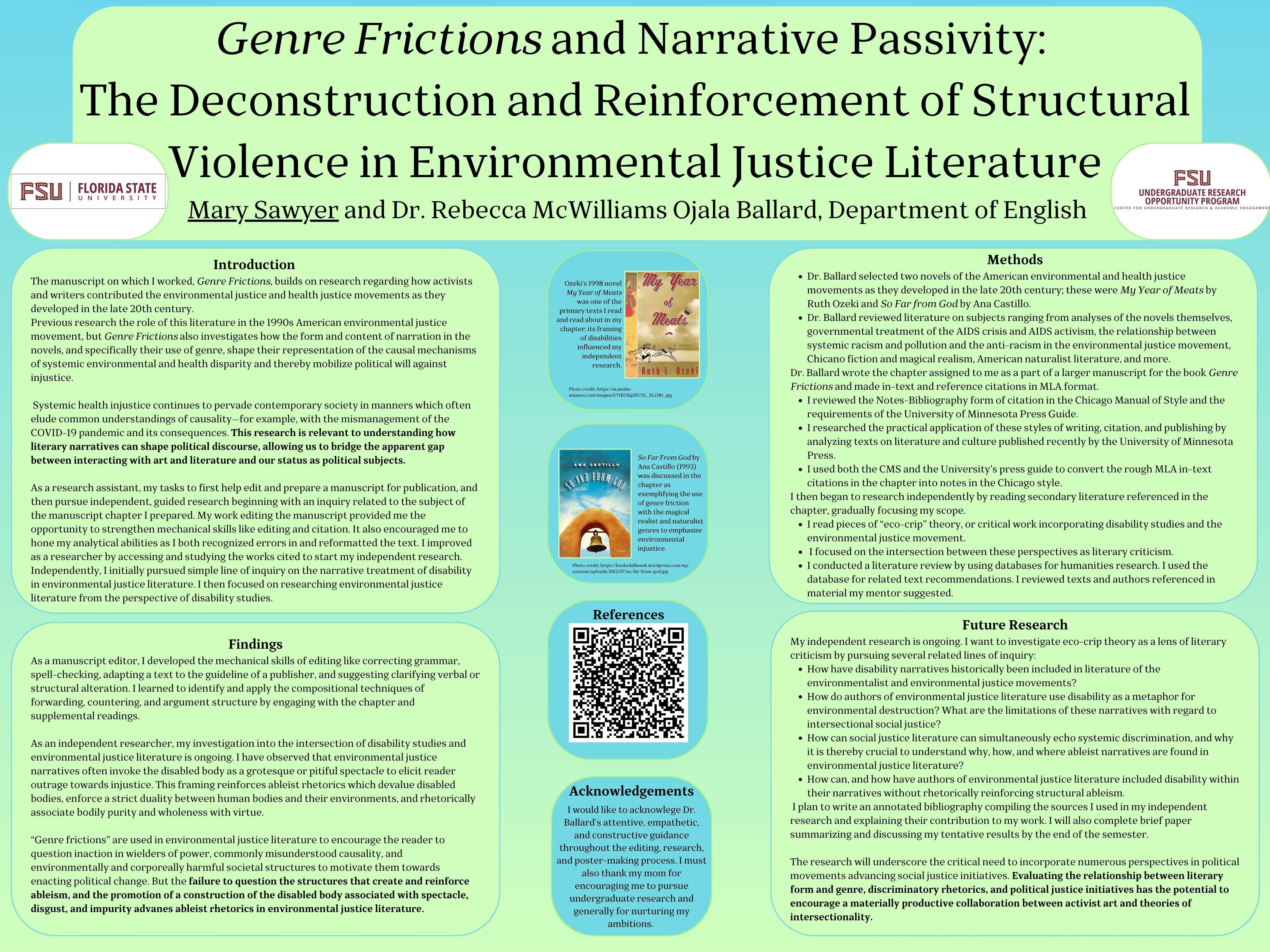Research Symposium
25th annual Undergraduate Research Symposium, April 1, 2025
Mary Sawyer Poster Session 4: 3:00 pm - 4:00 pm/ Poster #157
BIO
I am a first-year student from Miami pursuing a double-major in Editing, Writing, Media and International Affairs. I currently compete as a witness on the Undergraduate Mock Trial team and I am involved with Inter-Residence Hall Council as the elected Historian for the JRB Hall Complex. I am also passionate about studying Russian, watching international films, and taking long walks in all environments. I was intrigued by Genre Frictions as a research project because I wanted to study the relationship between fictional narratives and political activism. Participating in UROP has facilitated my engagement with editing for publication, research, and analysis and argumentation at the academic level. I plan to use these skills broadly through my undergraduate career and beyond as I move forward with my education.
Genre Frictions and Narrative Passivity: The Deconstruction and Reinforcement of Structural Violence in Environmental Justice Literature
Authors: Mary Sawyer, Dr. Rebecca BallardStudent Major: Editing, Writing, Media and International Affairs
Mentor: Dr. Rebecca Ballard
Mentor's Department: Department of English Mentor's College: College of Arts and Sciences Co-Presenters:
Abstract
The manuscript on which I worked, Genre Frictions, builds on research regarding how activists and writers contributed the environmental justice and health justice movements as they developed in the late 20th century. Previous research addresses the role of this literature in the 1990s American environmental justice movement, but Genre Frictions also investigates how the form and content of narration in the novels, and specifically their use of genre, shape their representation of the causal mechanisms of systemic environmental and health disparity and thereby mobilize political will against injustice. Systemic health injustice continues to pervade contemporary society in manners which often elude common understandings of causality—for example, with the mismanagement of the COVID-19 pandemic and its consequences. This research is relevant to understanding how literary narratives can shape political discourse, allowing us to bridge the apparent gap between interacting with art and literature and our status as political subjects. As an independent researcher, I explored the narrative treatment of disability in environmental justice literature. I focused on researching environmental justice literature from the perspective of disability studies.
Keywords: Environmental Justice, Environmentalism, Literature, Disability, Genre


